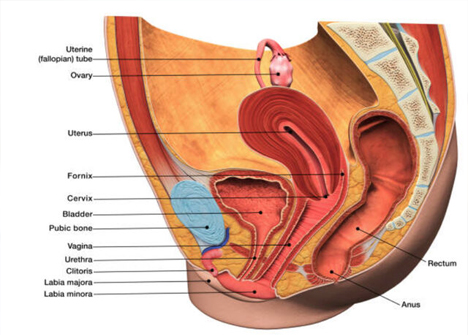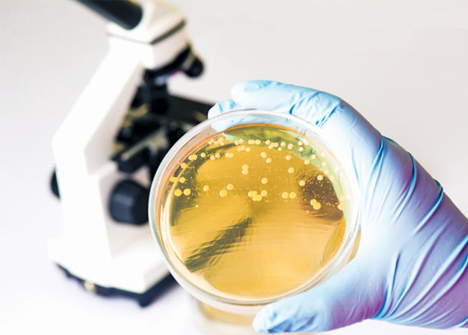One of the most common reasons for visits to your GYN is a spectrum of problems generally labeled vaginitis. These include issues with discharge, malodor, or discomfort of the vagina. Each one of these symptoms can indicate a particular bacteria, fungus, or potentially other underlying cause.
SYMPTOMS
 Since there are many different reasons for vaginitis, the symptoms can usually vary slightly and overlap.
Since there are many different reasons for vaginitis, the symptoms can usually vary slightly and overlap.
Some of the possible symptoms your doctor will ask about include the following:
- Discharge
- Foul smell or fishy odor
- Does it have a trigger (like the end of your menstrual period or the day after intercourse)
- Pain
- Itching
- Bleeding
- Dryness
- Redness or irritation of the vagina
CAUSES AND TREATMENTS
After Midtown GYN discusses your symptoms and believes you have a type of vaginitis, They will discuss some of the potential reasons you may be having these symptoms.
Gynecologists of Manhattan Women’s Health & Wellness offers comprehensive Obstetrics & Gynecology care in NYC for women of all ages. Our ob-gyn clinic provides a full range of gynecology services, from annual check-ups and routine pap smears to Vaginitis treatments and GYN procedures, surgeries performed in our office or the hospital. In addition, our state-of-the-art gynecology NYC facility has the latest ob-gyn equipment.
The vagina is a complex ecosystem of bacteria and fungus and an admixture of hormones and closely regulated to maintain the perfect pH and bacteria/fungal levels, so no one particular bacteria or fungus overgrows. However, suppose reasons discussed later throw off this ecosystem. In that case, it allows one strain of bacteria or fungus, or sometimes both, to be overgrown and disrupts the environment causing distressing symptoms.
Your gynecologist can effortlessly treat most forms of vaginitis. Visit our women’s health care center or make an appointment online today.
The most common causes of vaginitis include:
- Bacterial vaginosis, well known for its abbreviation, BV, is an overgrowth of bacteria naturally occurring within the vagina. It is not necessarily considered an STI. However, it commonly occurs after sex due to interactions with the bacteria and their environment in the vagina. BV can cause malodor and usually a thin gray discharge. Luckily it is usually easily treated with a short course of antibiotics or vaginal creams.
- Yeast, generally a candida species, again overgrows within the vagina due to imbalance or environmental change. Yeast usually presents clumpy white discharge and itching; Yeast can be very bothersome, primarily if it occurs frequently. Vaginal flushes to reduce yeast infections followed by antibiotics generally knock out even the most severe vaginal yeast infections. Yeast is also not considered an STI.
- richomonas Vaginalis, also known as “Trich,” is an STI known for its foul odor, vaginal discomfort, potentially vaginal bleeding, and usually abundant green discharge. However, sometimes it causes few or no symptoms at all. You should always treat trichomonas with antibiotics, and your Midtown GYN will want you to come back in a few weeks later for retesting to make sure you have treated the infection successfully and thoroughly. Your partner will also need to undergo treatment.
- Atrophic vaginitis is a common problem, particularly with the post-menopausal population. Often after menopause, the cessation of estrogen production by the ovaries leads to changes in the vagina, including loss of elasticity and dryness. These vary from woman to woman. Some experience significant dryness to the point where they describe even walking as “feels like walking with sandpaper between my legs” or say it leads to small amounts of bleeding. After a thorough exam by your NYC gynecologist in Midtown, they may give you a daily lubricant to alleviate mild symptoms, or if no contraindications exist, may prescribe a hormone cream for a few weeks.
While these are the most common, there are frequently less common or different reasons for vaginitis. Hence, it is always important that if you experience any symptoms, to see your gynecologist for a correct and accurate diagnosis. Visiting your doctor will also aid in ruling potentially underlying severe conditions.
DIAGNOSIS

Your Midtown gynecologist will always begin by taking a thorough history of your issue, whether discharge, pain, bleeding, or odor. They will want to know if this is the first time it’s happening or if you have had it several times in the past.
Next, your gynecologist may do a physical exam where they will use a speculum to see inside the vagina, notice any changes or potential problems. Then they likely take a swab of the discharge to send to the pathologist’s lab, where they will be able to identify any overgrowths of bacteria, yeast, or other forms of vaginal pathogens.
Important Reminder: The only intent of this information is to provide gynecology guidance, not definitive medical advice. Please consult your OBGYN doctor about your specific condition. Only a trained, experienced gynecologist or certified gynecology specialist can determine an accurate diagnosis and proper treatment.
Have questions about Vaginal Discharge and Vaginitis Treatment? Then, please schedule an appointment with the best OBGYN in Midtown NYC by calling our office today
Updated on Sep 23, 2023 by Manhattan Women’s Health and Wellness
Best-in-class
New York Gynecology Clinic
Manhattan Specialty Care in the Press

Call now to make an appointment with our highly rated Manhattan Gynecology doctors regarding your health. We look forward to seeing you!
book online now
(212) 378-9985
New York City Locations:
Manhattan Women's Health & Wellness (Upper East Side)
983 Park Ave, Ste 1D17
New York, NY 10028
(212) 389-1904
Manhattan Women's Health & Wellness (Midtown)
56 W 45th St, Ste 815
New York, NY 10010
(212) 677-7654
Manhattan Women's Health & Wellness (Union Square)
55 W 17th St, Ste 104
New York, NY 10011
(212) 378-9985